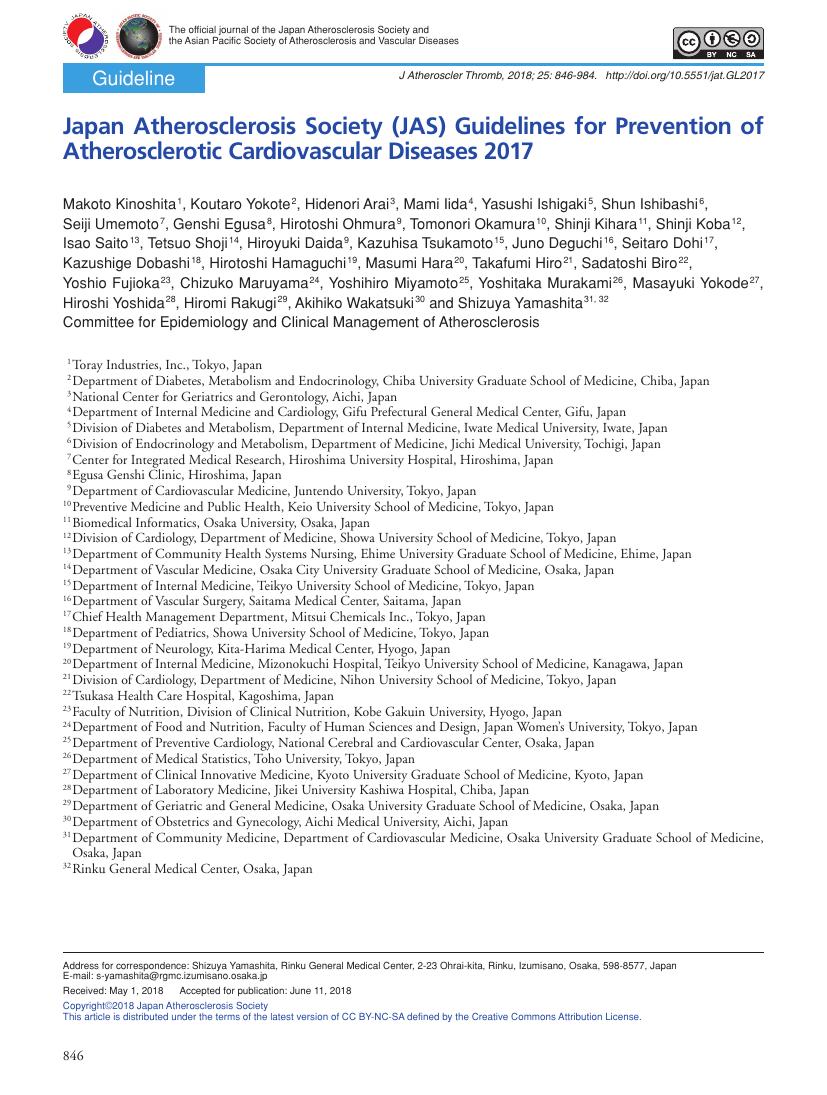- 著者
- Ryo Nakamaru Hironori Nakagami Hiromi Rakugi Ryuichi Morishita
- 出版者
- The Japanese Circulation Society
- 雑誌
- Circulation Journal (ISSN:13469843)
- 巻号頁・発行日
- vol.84, no.11, pp.1895-1902, 2020-10-23 (Released:2020-10-23)
- 参考文献数
- 56
- 被引用文献数
- 2 4
Vaccines are well-known therapies for infectious disease and cancer; however, recently, we and others have developed vaccines for other chronic diseases, such as hypertension, diabetes and dyslipidemia. Although we have many treatment options for hypertension, including angiotensin II type 1 receptor blockers, calcium-channel blockers, and diuretics, a substantial portion of the hypertensive population has uncontrolled blood pressure due to poor medication adherence. When these vaccines are established in the future as therapeutic options for chronic diseases, their administration regimen, such as several times per year, will replace daily medication use. Thus, therapeutic vaccines might be a novel option to control the progression of cardiovascular diseases. Importantly, regarding the development of vaccines against self-antigens (i.e., angiotensin II), the vaccine should efficiently induce a blocking antibody response against the self-antigen without provoking cytotoxic T cells. Therefore, to address the safety and efficiency of therapeutic vaccines, we have developed an original B-cell vaccine to induce antibody production and used carrier proteins, which include exogenous T-cell epitopes through the major histocompatibility complex. In this review, we will introduce the challenges in developing therapeutic vaccines for chronic diseases and describe the therapeutic potential for cardiovascular diseases.
- 著者
- Makoto Kinoshita Koutaro Yokote Hidenori Arai Mami Iida Yasushi Ishigaki Shun Ishibashi Seiji Umemoto Genshi Egusa Hirotoshi Ohmura Tomonori Okamura Shinji Kihara Shinji Koba Isao Saito Tetsuo Shoji Hiroyuki Daida Kazuhisa Tsukamoto Juno Deguchi Seitaro Dohi Kazushige Dobashi Hirotoshi Hamaguchi Masumi Hara Takafumi Hiro Sadatoshi Biro Yoshio Fujioka Chizuko Maruyama Yoshihiro Miyamoto Yoshitaka Murakami Masayuki Yokode Hiroshi Yoshida Hiromi Rakugi Akihiko Wakatsuki Shizuya Yamashita Committee for Epidemiology and Clinical Management of Atherosclerosis
- 出版者
- Japan Atherosclerosis Society
- 雑誌
- Journal of Atherosclerosis and Thrombosis (ISSN:13403478)
- 巻号頁・発行日
- vol.25, no.9, pp.846-984, 2018-09-01 (Released:2018-09-01)
- 参考文献数
- 999
- 被引用文献数
- 347 524
- 著者
- Ryo Nakamaru Hironori Nakagami Hiromi Rakugi Ryuichi Morishita
- 出版者
- The Japanese Circulation Society
- 雑誌
- Circulation Journal (ISSN:13469843)
- 巻号頁・発行日
- pp.CJ-20-0703, (Released:2020-09-08)
- 参考文献数
- 56
- 被引用文献数
- 4
Vaccines are well-known therapies for infectious disease and cancer; however, recently, we and others have developed vaccines for other chronic diseases, such as hypertension, diabetes and dyslipidemia. Although we have many treatment options for hypertension, including angiotensin II type 1 receptor blockers, calcium-channel blockers, and diuretics, a substantial portion of the hypertensive population has uncontrolled blood pressure due to poor medication adherence. When these vaccines are established in the future as therapeutic options for chronic diseases, their administration regimen, such as several times per year, will replace daily medication use. Thus, therapeutic vaccines might be a novel option to control the progression of cardiovascular diseases. Importantly, regarding the development of vaccines against self-antigens (i.e., angiotensin II), the vaccine should efficiently induce a blocking antibody response against the self-antigen without provoking cytotoxic T cells. Therefore, to address the safety and efficiency of therapeutic vaccines, we have developed an original B-cell vaccine to induce antibody production and used carrier proteins, which include exogenous T-cell epitopes through the major histocompatibility complex. In this review, we will introduce the challenges in developing therapeutic vaccines for chronic diseases and describe the therapeutic potential for cardiovascular diseases.
